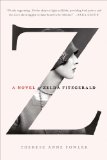Summary | Excerpt | Reading Guide | Discuss | Reviews | Beyond the Book | Readalikes | Genres & Themes | Author Bio

Critics' Opinion:
Readers' Opinion:
First Published:
Mar 2013, 352 pages
Paperback:
Mar 2014, 384 pages
 Book Reviewed by:
Book Reviewed by:
Poornima Apte
Buy This Book
"Good morning, everyone," she said in her drawl-less, nasal voice. "I see you've found our new location without undue effort. The war continues, and so we must continue—indeed, redouble—our efforts for membership and productivity."
Some of the girls cheered. They were the younger ones who'd only just been allowed to join.
Mrs. Baker nodded, which made her chin disappear into her neck briefly, and then she continued, "Now, some of you have done finger and arm bandages; the principle of the leg and body bandages is the same. However, there are some significant differences to which we must attend. For any who have not been so instructed, I will start the lesson from the beginning. We start, first, with sheets of unbleached calico…"
I squeezed rainwater from my hem while Mrs. Baker lectured about widths and lengths and tension and began a demonstration. She handed the end of a loose strip of fabric to the girl sitting nearest and said, "Stand up, my dear. One of you holds the bulk of the fabric and feeds it through as needed—that person is the rollee. The roller's thumbs must be on the upper aspect of the fabric, the forefinger beneath, like so. As we proceed, the forefingers are kept firmly against the roll, thumbs advanced for maximum tautness. Everyone, up now and begin."
I took a loosely tied bundle of fabric from one of several baskets lined up along the floor behind me. The fabric was pure white at the moment, sure, but it would soon be blood-soaked and covering a man's whole middle, crusted with dirt and irresistible to flies. I'd seen photographs of Civil War soldiers suffering this way, in books that depicted what Daddy called "the atrocities done to us by the Union."
It was my brother, Tony, seven years older than me and now serving in France, who Daddy meant to educate with the books and the discussions. He never shooed me out of the parlor, though. He would wave me over from where I might be picking out a simple tune on the piano and let me perch on his knee.
"The Sayres have a proud history in Montgomery," he'd say, paging through one of the books. "Here. This is my uncle William's original residence, where he raised his younger brother Daniel, your grandfather. It became the first Confederate White House."
"So Sayre Street is named for us, Daddy?" I asked with all the wonder of my seven or eight years.
"It honors William and my father. The two of them made this town what it is, children."
Tony seemed to take the Sayre family history as a matter of course. I, however, was fascinated with all of these now-dead relatives and would continue to ask questions about which of them had done what, when. I wanted stories.
From Daddy, I got tales of how his father, Daniel Sayre, founded a Tuskegee paper, then returned to Montgomery to edit the Montgomery Post, becoming an influential voice in local politics. And Daddy told me about his mother's brother, "the great General John Tyler Morgan," who'd pummeled Union troops every chance he got, then later became a prominent U.S. Senator. From Mama I came to know her father, Willis Machen, the U.S. Senator from Kentucky, whose friendship with Senator Morgan was responsible for my parents' meeting at Senator Morgan's New Year's Eve ball in 1883. Grandfather Machen had once been a presidential candidate.
I wondered, that day at the Red Cross, if our family's history was burdensome to Tony, oppressive, maybe. And maybe that was why he'd married Edith, whose people were tenant farmers, and then left Montgomery to live and work in Mobile. To be the only surviving son in a family—and not the first son, not the son who'd been named after the grandfather upon whose shoulders so much of Montgomery's fate had apparently rested, not the son who'd died from meningitis at just eighteen months old—well, that was a heavy yoke.
Excerpted from Z: A Novel of Zelda Fitzgerald by Therese Fowler. Copyright © 2013 by Therese Fowler. Excerpted by permission of St. Martin's Press. All rights reserved. No part of this excerpt may be reproduced or reprinted without permission in writing from the publisher.




Silent gratitude isn't much use to anyone
Click Here to find out who said this, as well as discovering other famous literary quotes!
Your guide toexceptional books
BookBrowse seeks out and recommends the best in contemporary fiction and nonfiction—books that not only engage and entertain but also deepen our understanding of ourselves and the world around us.